Dr. Lam is a medical student advisor at the CUNY School of Medicine, a family medicine physician, and
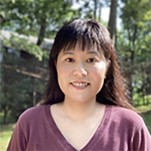
a graduate of the Columbia Presbyterian Medical Center family medicine residency program. She earned her medical degree from the New York Institute of Technology College of Osteopathic Medicine.
Dr. Lam is dedicated to empathy, sensitivity, and diversity in the healthcare environment. She worked in many underserved areas, which led her to value cultural competency and inclusion, resulting in her involvement in the Health Professions Mentorship Program at the CUNY School of Medicine.
In her spare time, she enjoys running and traveling, and occasionally combines the two by entering races across the country/world.
Mariam Manuel, Ph.D., is an Clinical Assistant Professor/Master Teacher for teachHOUSTON, a
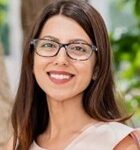
secondary STEM teacher preparation program in the Department of Mathematics at University of Houston. Dr. Manuel has authored courses for undergraduates and graduate students on topics of Physics Education, Engineering Design, and Culturally Responsive Pedagogy. She is also part of two NSF projects that prepare teacher leaders and provide informal STEM learning experiences for students from underrepresented minority populations. She is the Director of Professional Development for the LEAD Houston Fellowship and has previously directed the UH Noyce Summer Professional Development Institute. In the face of the pandemic, she co-directed a virtual summer program, tH STEM Interactive, which served 3,000 participants worldwide. For her mentorship efforts, she received the 2018 Million Women Mentors Stand Up for STEM Award and the 2019 Association of Women in Mathematics Certificate of Service to the Field for Mentorship of Girls and Young Women in STEM. Most recently, she was awarded the 2020 UTeach STEM Educators’ Association Award for Outstanding Contributions to STEM Education.
Dr. Thomas Thesen is an Associate Professor of Medical Education at the Geisel School of Medicine at
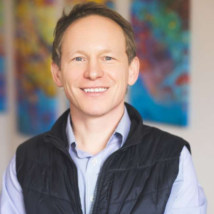
Dartmouth, an Adjunct Associate Professor of Computer Science at Dartmouth College, an Affiliate Faculty member at the Center for Technology & Behavioral Health, and a Visiting Scientist at the Brain & Mind Institute at Aga Khan University in Kenya. He earned his Ph.D. in Cognitive Neuroscience from Oxford University and completed a postdoctoral fellowship in psychophysiology and brain imaging at the University of California, San Diego. Dr. Thesen led a brain imaging lab at the New York University School of Medicine and later contributed to the establishment of a new mission-driven medical school at the University of Houston, Texas.
Dr. Thesen directs the Neuroscience-Informed Learning & Education (NILE) Lab at Dartmouth, where he leads research focused on optimizing learning conditions for healthcare trainees through innovative technologies. His work emphasizes the importance of individual variability in learners, applying a precision approach to medical education that caters to the unique needs of each student. Dr. Thesen’s current research explores the use of Generative AI and digital health to develop personalized learning and wellness strategies in medicine, with the goal of enhancing educational outcomes and supporting trainee well-being.
Dr. Thesen’s research has been funded by the NIH, NSF, Wellcome Trust, American Medical Association, IAMSE, and other nonprofit and philanthropic organizations. At Geisel, Dr. Thesen directs the Neuroscience & Neurology course and the Medical Learning Sciences course in the MD program. A dedicated educator, he has received several teaching awards, including the Distinguished Lecturer Award at Geisel, a Teaching Innovation Award from the University of Houston, and the A.B. Baker Teacher Recognition Award from the American Academy of Neurology.
 educator for a secondary STEM program, and has developed coursework for implementing culturally responsive and antiracist approaches to teaching, and is looking into how it prepares future teachers to be inclusive in their approach to teaching and learning. Additionally, she is a co-PI on a STEMM multilayered mentor-based research laboratory project for high schoolers, STEM undergraduates and medical school students, who she trains with her colleagues on culturally responsive mentorship, instruction and now approaches to medicine.
educator for a secondary STEM program, and has developed coursework for implementing culturally responsive and antiracist approaches to teaching, and is looking into how it prepares future teachers to be inclusive in their approach to teaching and learning. Additionally, she is a co-PI on a STEMM multilayered mentor-based research laboratory project for high schoolers, STEM undergraduates and medical school students, who she trains with her colleagues on culturally responsive mentorship, instruction and now approaches to medicine. a graduate of the Columbia Presbyterian Medical Center family medicine residency program. She earned her medical degree from the New York Institute of Technology College of Osteopathic Medicine.
a graduate of the Columbia Presbyterian Medical Center family medicine residency program. She earned her medical degree from the New York Institute of Technology College of Osteopathic Medicine. secondary STEM teacher preparation program in the Department of Mathematics at University of Houston. Dr. Manuel has authored courses for undergraduates and graduate students on topics of Physics Education, Engineering Design, and Culturally Responsive Pedagogy. She is also part of two NSF projects that prepare teacher leaders and provide informal STEM learning experiences for students from underrepresented minority populations. She is the Director of Professional Development for the LEAD Houston Fellowship and has previously directed the UH Noyce Summer Professional Development Institute. In the face of the pandemic, she co-directed a virtual summer program, tH STEM Interactive, which served 3,000 participants worldwide. For her mentorship efforts, she received the 2018 Million Women Mentors Stand Up for STEM Award and the 2019 Association of Women in Mathematics Certificate of Service to the Field for Mentorship of Girls and Young Women in STEM. Most recently, she was awarded the 2020 UTeach STEM Educators’ Association Award for Outstanding Contributions to STEM Education.
secondary STEM teacher preparation program in the Department of Mathematics at University of Houston. Dr. Manuel has authored courses for undergraduates and graduate students on topics of Physics Education, Engineering Design, and Culturally Responsive Pedagogy. She is also part of two NSF projects that prepare teacher leaders and provide informal STEM learning experiences for students from underrepresented minority populations. She is the Director of Professional Development for the LEAD Houston Fellowship and has previously directed the UH Noyce Summer Professional Development Institute. In the face of the pandemic, she co-directed a virtual summer program, tH STEM Interactive, which served 3,000 participants worldwide. For her mentorship efforts, she received the 2018 Million Women Mentors Stand Up for STEM Award and the 2019 Association of Women in Mathematics Certificate of Service to the Field for Mentorship of Girls and Young Women in STEM. Most recently, she was awarded the 2020 UTeach STEM Educators’ Association Award for Outstanding Contributions to STEM Education. Dartmouth, an Adjunct Associate Professor of Computer Science at Dartmouth College, an Affiliate Faculty member at the Center for Technology & Behavioral Health, and a Visiting Scientist at the Brain & Mind Institute at Aga Khan University in Kenya. He earned his Ph.D. in Cognitive Neuroscience from Oxford University and completed a postdoctoral fellowship in psychophysiology and brain imaging at the University of California, San Diego. Dr. Thesen led a brain imaging lab at the New York University School of Medicine and later contributed to the establishment of a new mission-driven medical school at the University of Houston, Texas.
Dartmouth, an Adjunct Associate Professor of Computer Science at Dartmouth College, an Affiliate Faculty member at the Center for Technology & Behavioral Health, and a Visiting Scientist at the Brain & Mind Institute at Aga Khan University in Kenya. He earned his Ph.D. in Cognitive Neuroscience from Oxford University and completed a postdoctoral fellowship in psychophysiology and brain imaging at the University of California, San Diego. Dr. Thesen led a brain imaging lab at the New York University School of Medicine and later contributed to the establishment of a new mission-driven medical school at the University of Houston, Texas.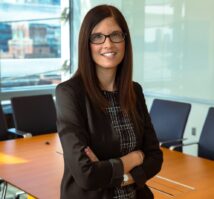 NYU Grossman School of Medicine, Director of the Accelerated Three-Year MD Pathway, Vice-Chair for Clinical Operations and Associate Professor in the Department of Pathology. As Senior Associate Dean for Education, Faculty and Academic Affairs, Dr. Cangiarella oversees faculty appointments, promotions, and tenure at NYU Grossman School of Medicine.
NYU Grossman School of Medicine, Director of the Accelerated Three-Year MD Pathway, Vice-Chair for Clinical Operations and Associate Professor in the Department of Pathology. As Senior Associate Dean for Education, Faculty and Academic Affairs, Dr. Cangiarella oversees faculty appointments, promotions, and tenure at NYU Grossman School of Medicine.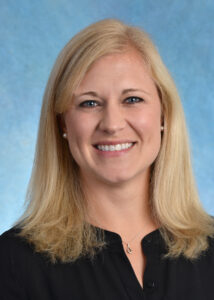 the Director of the Fully Integrated Readiness for Service Training (FIRST) Program. The FIRST Program is an accelerated three-year medical school curriculum, linked to direct progression into a UNC-affiliated residency program, followed by three years of service to the state of North Carolina. Dr. Coe is also the Co-Director of the Patient Centered Care (PCC) Course, the introduction to clinical medicine for first- and second-year medical students. She also serves as the Associate Medical Director to the University Employee Occupational Health Clinic and is the Principal Investigator on several medical education grants.
the Director of the Fully Integrated Readiness for Service Training (FIRST) Program. The FIRST Program is an accelerated three-year medical school curriculum, linked to direct progression into a UNC-affiliated residency program, followed by three years of service to the state of North Carolina. Dr. Coe is also the Co-Director of the Patient Centered Care (PCC) Course, the introduction to clinical medicine for first- and second-year medical students. She also serves as the Associate Medical Director to the University Employee Occupational Health Clinic and is the Principal Investigator on several medical education grants.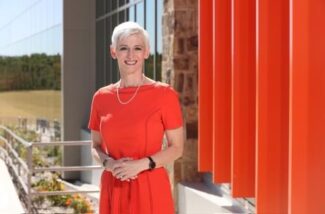 Tahlequah. She previously served as Associate Dean for Academic Affairs at OSU COM at the Cherokee Nation since 2018. Bray also serves as Associate Dean for Accreditation for OSU Center for Health Sciences.
Tahlequah. She previously served as Associate Dean for Academic Affairs at OSU COM at the Cherokee Nation since 2018. Bray also serves as Associate Dean for Accreditation for OSU Center for Health Sciences.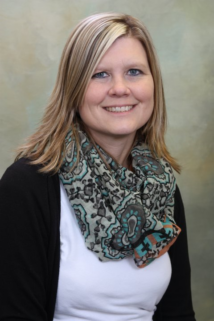 Development and Professor at the West Virginia School of Osteopathic Medicine. In this capacity, she oversees many activities including testing/assessment/surveying, curriculum mapping, competency tracking, academic technology, faculty development, program evaluation and educational research. Dr. Linsenmeyer’s initiatives encompass the entire span of medical education from undergraduate to graduate medical education. She has over a decade of experience in the medical education profession serving nationally as a fellow in the National Association of Osteopathic Medical Educators (secretary), AACOM EPA Steering Committee (Chair), NBOME Portfolio and Special Assessment Taskforce (member), and previous program planning committee member for both The Generalists in Medical Education and the International Association of Medical Science Educators. She is an associate editor, an author, and both national and international speaker discussing various medical education topics also spanning her broad background.
Development and Professor at the West Virginia School of Osteopathic Medicine. In this capacity, she oversees many activities including testing/assessment/surveying, curriculum mapping, competency tracking, academic technology, faculty development, program evaluation and educational research. Dr. Linsenmeyer’s initiatives encompass the entire span of medical education from undergraduate to graduate medical education. She has over a decade of experience in the medical education profession serving nationally as a fellow in the National Association of Osteopathic Medical Educators (secretary), AACOM EPA Steering Committee (Chair), NBOME Portfolio and Special Assessment Taskforce (member), and previous program planning committee member for both The Generalists in Medical Education and the International Association of Medical Science Educators. She is an associate editor, an author, and both national and international speaker discussing various medical education topics also spanning her broad background.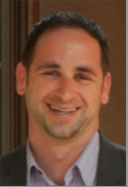 California, San Diego School of Medicine and Skaggs School of Pharmacy and Pharmaceutical Sciences. Schneid has over 20 years teaching biomedical sciences to medical and pharmacy students and in the summer pre-matriculation course offered to incoming students. He has also been the lead instructor for the postbaccalaureate premedical program for the past 10 years. His research interests include assessment, team-based learning, and outcomes of pre-matriculation and postbaccalaureate programs.
California, San Diego School of Medicine and Skaggs School of Pharmacy and Pharmaceutical Sciences. Schneid has over 20 years teaching biomedical sciences to medical and pharmacy students and in the summer pre-matriculation course offered to incoming students. He has also been the lead instructor for the postbaccalaureate premedical program for the past 10 years. His research interests include assessment, team-based learning, and outcomes of pre-matriculation and postbaccalaureate programs.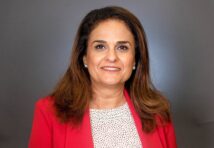 for admissions and assistant professor in Psychiatry. As dean of admissions, she oversees admissions and recruitment for both campuses of the college of medicine. She is a passionate advocate for holistic review in admissions and a strong supporter for students in helping them achieve their academic and professional goals.
for admissions and assistant professor in Psychiatry. As dean of admissions, she oversees admissions and recruitment for both campuses of the college of medicine. She is a passionate advocate for holistic review in admissions and a strong supporter for students in helping them achieve their academic and professional goals.